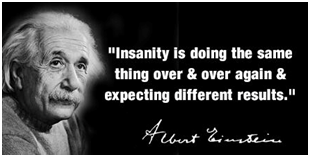Combining the Lunenburg, Kubler-Ross, and Lewin approaches can result in a comprehensive theory of organizational change that takes into account the emotional, social, and practical aspects of change. Here is a proposed framework that integrates these three approaches:
1. Identify the driving and restraining forces: Using Lewin's force-field theory, identify the driving and restraining forces that affect the change process. Driving forces are those that push the organization towards change, while restraining forces are those that oppose change and seek to maintain the status quo.
2. Communicate a clear vision and manage resistance: Using Lunenburg's theory, develop a clear and compelling vision for change and communicate it to all stakeholders. Address concerns and resistance by listening to stakeholders and providing adequate resources and support.
3. Understand the emotional and psychological stages of change: Using Kubler-Ross's model, recognize that change can trigger a range of emotional responses in individuals and teams. Be prepared to address these emotions and provide support to help individuals and teams move through the stages of grief.
4. Foster a supportive culture: Using Lunenburg's theory, create a supportive organizational culture that values learning, innovation, and continuous improvement. This culture will help to promote engagement and collaboration among stakeholders and create a sense of ownership and commitment to the change process.
5. Evaluate and adapt: Using all three approaches, continuously monitor the progress of the change process and evaluate its effectiveness. Be prepared to adapt and make changes as necessary to ensure the change is successful and sustainable.
This integrated approach recognizes that organizational change is a complex and dynamic process that requires attention to emotional, social, and practical factors. By addressing these factors, organizations can successfully implement change and achieve their desired future state.
Madness?
This quote is commonly attributed to Albert Einstein, and it suggests that continuing to do the same thing over and over again while expecting a different result is a form of irrational or illogical behavior.
This quote highlights the importance of recognizing when a particular approach or strategy is not working and being willing to make changes and try something different. It emphasizes the need for flexibility, adaptability, and a willingness to experiment and take risks in order to achieve different outcomes.
In the context of organizational change, this quote underscores the importance of being open to new ideas, approaches, and perspectives. Organizations that are resistant to change and insist on doing things the same way may find themselves falling behind or failing to achieve their goals. By being open to change and willing to try new things, organizations can stay relevant, innovative, and competitive in a rapidly changing world.







No comments:
Post a Comment